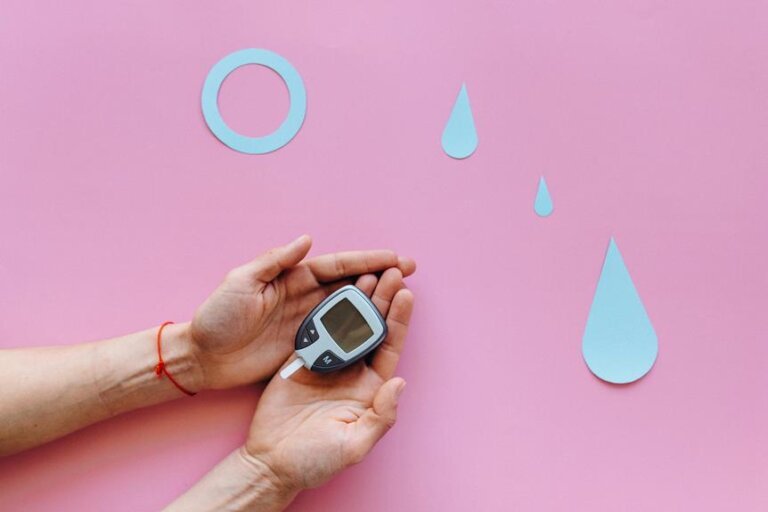The Connection Between Aging and Diabetes
As the sun sets on the horizon of life, the journey of aging can sometimes lead you down unexpected paths.
Have you ever pondered the intricate relationship between the passing years and the development of diabetes?
The intertwining of these two aspects of existence holds a wealth of knowledge waiting to be uncovered.
Stay tuned as we unravel the intricate web of connections between aging and diabetes, shedding light on the implications for your health and well-being.
Impact of Aging on Diabetes Risk
As you age, your risk of developing diabetes increases due to changes in your body’s ability to regulate blood sugar levels. Aging often leads to decreased insulin sensitivity, making it harder for your body to respond to insulin effectively. Additionally, as you get older, your pancreas may produce less insulin, further complicating blood sugar management.
Moreover, age-related factors such as decreased physical activity, changes in body composition, and potential weight gain can also contribute to an increased risk of diabetes. Muscle mass tends to decrease with age, reducing the body’s ability to utilize blood sugar for energy efficiently. This, in combination with a potential decrease in metabolism, can lead to higher blood sugar levels over time.
Furthermore, aging can bring about changes in hormone levels, potentially impacting how your body processes glucose. As you age, it becomes crucial to stay proactive about monitoring your blood sugar levels, maintaining a healthy lifestyle, and seeking regular medical check-ups to catch any warning signs of diabetes early on.
Challenges for Older Adults With Diabetes
Aging can present unique challenges for older adults managing diabetes, requiring careful attention to various factors affecting blood sugar control. As you age, your body may become less sensitive to insulin, making it harder to regulate blood sugar levels. This insulin resistance can lead to higher blood sugar levels, increasing the risk of complications associated with diabetes.
Additionally, older adults may have other health conditions that can impact diabetes management. Conditions such as heart disease, high blood pressure, and kidney problems are common among older individuals and can worsen the effects of diabetes. Managing multiple health issues can be overwhelming, making it crucial to work closely with healthcare providers to develop a comprehensive treatment plan.
Moreover, as you age, lifestyle factors such as diet and exercise can become more challenging to maintain. Changes in appetite, mobility issues, and medication interactions can all affect your ability to manage diabetes effectively. It’s essential to adapt your diabetes management plan as you age, taking into account these various challenges to ensure optimal blood sugar control and overall health.
Prevention Strategies for Aging Individuals
Implementing lifestyle modifications is key for aging individuals to prevent complications associated with diabetes. As you age, it becomes even more crucial to prioritize your health and well-being.
One of the most effective prevention strategies is maintaining a healthy weight. By staying within a healthy weight range, you can reduce the risk of developing type 2 diabetes. Regular physical activity is also essential. Engaging in activities like walking, swimming, or yoga can help improve your insulin sensitivity and lower blood sugar levels.
Another important aspect of prevention is following a balanced diet. Focus on consuming whole foods such as fruits, vegetables, whole grains, and lean proteins. Limit your intake of sugary drinks, processed foods, and unhealthy fats.
Monitoring your blood sugar levels regularly is vital in detecting any changes early on. Additionally, quitting smoking and moderating alcohol consumption can significantly lower your risk of developing diabetes.
Management Approaches for Aging Diabetics
To effectively manage diabetes as you age, it’s essential to adopt a comprehensive approach that includes medication adherence, regular monitoring of blood sugar levels, and lifestyle modifications. Taking your medications as prescribed by your healthcare provider is crucial in controlling blood sugar levels.
Regular monitoring, through methods like daily blood sugar checks, helps you understand how your body responds to different factors like food and exercise. Lifestyle modifications such as following a balanced diet, staying physically active, and managing stress can significantly impact your diabetes management.
Additionally, staying hydrated and getting enough sleep are important for overall health and can also influence your blood sugar levels. Engaging in regular exercise not only helps in controlling weight but also improves insulin sensitivity. By incorporating these strategies into your daily routine, you can effectively manage your diabetes and improve your overall well-being as you age.
Improving Quality of Life for Seniors
Improving the quality of life for seniors involves prioritizing holistic health and well-being through various lifestyle adjustments and support systems. One crucial aspect is promoting physical activity tailored to individual needs. Regular exercise can enhance mobility, reduce the risk of falls, and improve overall well-being.
Additionally, maintaining a balanced diet rich in nutrients is essential for managing health conditions and promoting longevity. Encouraging social connections and engagement is also vital. Seniors benefit greatly from staying connected with friends, family, and the community to prevent feelings of isolation and loneliness.
Furthermore, ensuring access to quality healthcare services and regular check-ups is paramount in managing health effectively. This includes monitoring blood sugar levels, managing medications, and addressing any health concerns promptly. Implementing safety measures in living spaces, such as installing grab bars and handrails, can prevent accidents and promote independence.
Conclusion
As you age, the risk of diabetes rises, creating challenges for seniors. By implementing prevention strategies and effective management approaches, you can improve your quality of life.
Remember, aging and diabetes are closely connected, but with dedication and determination, you can navigate these obstacles with ease.
Stay proactive, stay informed, and stay healthy as you age gracefully.




